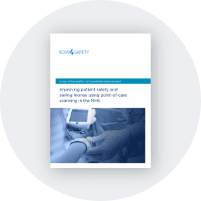

In 2014 the NHS eProcurement Strategy mandated the adoption of GS1 and PEPPOL standards to support the P2P process.
P2P encompasses master data management, inventory management and sourcing. For most organisations, it is largely a manually driven process.
However, much like any manual process, it is left vulnerable to errors including inaccurate orders, delayed invoicing and payments, and an overarching lack of traceability and visibility due to the heavy reliance on paper-based record logs.
This makes the P2P process inefficient and the inability to manage this process effectively consequently has a negative impact on patient safety.
In order to support NHS organisations and suppliers with adoption in preparation for the upcoming changes, in relation to the Medicines and Medical Devce Bill, GS1 UK have collaborated with NEP Shared Systems Group (NEP), B. Braun Medical Ltd. (B.Braun) and York Teaching Hospital NHS Foundation Trust (York NHS FT), to work together on driving adoption of GS1 and PEPPOL standards for NHS trusts and suppliers.

"At first, we didn’t fully appreciate the benefits that PEPPOL compliant trading could bring, but we knew that any solution that prevented POs and payables invoices from disappearing into ‘black holes’ had to be a good thing."
The adoption of GS1 and PEPPOL standards for the P2P process brings about some adoption challenges for trusts and suppliers, mainly those centring around the time taken for the process to be implemented and the validation required of the data. However, there are three overarching clear benefits for all once implemented:
1. Getting it right first time means a reduced risk of error caused by manual invoicing, PO matching and transcription errors thus improving accuracy of information
2. More accurate deliveries with the use of correct delivery details from the outset, particularly critical for time or temperature sensitive products
3. Less manual intervention so valuable time is released for other tasks as well as reducing paper
The key message from all these organisations is that suppliers, trusts and organisations such as NEP need to collaborate to ensure an efficient P2P process. The adoption of PEPPOL and GS1 standards, and using resources including LocationManager, are integral to patient care.
If you would like to submit a case study demonstrating how your trust has implemented GS1 standards, email us at healthcare.casestudies@gs1uk.org